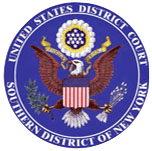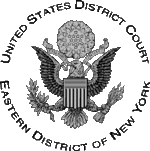Grokster Ltd. was a privately owned software company based in Nevis, West Indies that created the Grokster peer-to-peer file-sharing client in 2001 that used the FastTrack protocol. Grokster Ltd. was rendered extinct in late 2005 by the United States Supreme Court's decision in MGM Studios, Inc. v. Grokster, Ltd. The court ruled against Grokster's peer-to-peer file sharing program for computers running the Microsoft Windows operating system, effectively forcing the company to cease operations.
Online service provider law is a summary and case law tracking page for laws, legal decisions and issues relating to online service providers (OSPs), like the Wikipedia and Internet service providers, from the viewpoint of an OSP considering its liability and customer service issues. See Cyber law for broader coverage of the law of cyberspace.
Vicarious liability is a form of a strict, secondary liability that arises under the common law doctrine of agency, respondeat superior, the responsibility of the superior for the acts of their subordinate or, in a broader sense, the responsibility of any third party that had the "right, ability or duty to control" the activities of a violator. It can be distinguished from contributory liability, another form of secondary liability, which is rooted in the tort theory of enterprise liability because, unlike contributory infringement, knowledge is not an element of vicarious liability. The law has developed the view that some relationships by their nature require the person who engages others to accept responsibility for the wrongdoing of those others. The most important such relationship for practical purposes is that of employer and employee.
MGM Studios, Inc. v. Grokster, Ltd., 545 U.S. 913 (2005), is a United States Supreme Court decision in which the Court unanimously held that defendant peer-to-peer file sharing companies Grokster and Streamcast could be sued for inducing copyright infringement for acts taken in the course of marketing file sharing software. The plaintiffs were a consortium of 28 of the largest entertainment companies.

A&M Records, Inc. v. Napster, Inc., 239 F.3d 1004 (2001) was a landmark intellectual property case in which the United States Court of Appeals for the Ninth Circuit affirmed the ruling of the United States District Court for the Northern District of California, holding that defendant, peer-to-peer (P2P) file-sharing service Napster, could be held liable for contributory infringement and vicarious infringement of the plaintiffs' copyrights. This was the first major case to address the application of copyright laws to peer-to-peer file-sharing.
Secondary liability, or indirect infringement, arises when a party materially contributes to, facilitates, induces, or is otherwise responsible for directly infringing acts carried out by another party. The US has statutorily codified secondary liability rules for trademarks and patents, but for matters relating to copyright, this has solely been a product of case law developments. In other words, courts, rather than Congress, have been the primary developers of theories and policies concerning secondary liability.
Enterprise liability is a legal doctrine under which individual entities can be held jointly liable for some action on the basis of being part of a shared enterprise. Enterprise liability is a form of secondary liability.
The inducement rule is a test a United States court can use to determine whether liability for copyright infringement committed by third parties could be assigned to the distributor of the device used to commit infringement.
File sharing is the practice of distributing or providing access to digital media, such as computer programs, multimedia, documents or electronic books. It involves various legal aspects as it is often used to exchange intellectual property that is subject to copyright law or licensing.

Perfect 10, Inc. v. Amazon.com, Inc., 508 F.3d 1146 was a case in the United States Court of Appeals for the Ninth Circuit involving Perfect 10, Inc., Amazon.com, Inc. and Google, Inc. The court held that Google's framing and hyperlinking as part of an image search engine constituted a fair use of Perfect 10's images because the use was highly transformative, overturning most of the district court's decision.
Perfect 10, Inc. v. Visa Int'l Serv. Ass'n is a court case in which the pornography magazine Perfect 10 filed a complaint against Visa and MasterCard for copyright infringement and trademark infringement.

Religious Technology Center v. Netcom On-Line Communication Services, Inc., 907 F. Supp. 1361, is a U.S. district court case about whether the operator of a computer bulletin board service ("BBS") and Internet access provider that allows that BBS to reach the Internet should be liable for copyright infringement committed by a subscriber of the BBS. The plaintiff Religious Technology Center ("RTC") argued that defendant Netcom was directly, contributorily, and vicariously liable for copyright infringement. Netcom moved for summary judgment, disputing RTC's claims and raising a First Amendment argument and a fair use defense. The district court of the Northern District of California concluded that RTC's claims of direct and vicarious infringement failed, but genuine issues of fact precluded summary judgment on contributory liability and fair use.

Hotfile was a one-click file hosting website founded by Hotfile Corp in 2006 in Panama City, Panama. On December 4, 2013, Hotfile ceased all operations, the same day as signing a $4 million settlement with the Motion Picture Association of America (MPAA); the settlement had previously been misreported as $80 million.

Gershwin Publishing Corp. v. Columbia Artists Management, Inc., 443 F.2d 1159, was a copyright infringement case in which the United States Court of Appeals for the Second District ruled that defendant Columbia Artists Management, Inc. was liable for vicarious copyright infringement and contributory copyright infringement. Plaintiff American Society of Composers, Authors and Publishers ("ASCAP"), on behalf of Gershwin Publishing Corp., sued Columbia Artists Management, Inc. ("CAMI") on the premise that CAMI had no permission to use a song from its repertory for a public, for-profit concert in which artists managed by CAMI performed. The final court decision established that contributory infringement can still be liable for copyright infringement if the party has knowledge of the violating activity, whether or not they are directly involved in the violation.

Arista Records LLC v. Lime Group LLC, 715 F. Supp. 2d 481, is a United States district court case in which the Southern District of New York held that Lime Group LLC, the defendant, induced copyright infringement with its peer-to-peer file sharing software, LimeWire. The court issued a permanent injunction to shut it down. The lawsuit is a part of a larger campaign against piracy by the Recording Industry Association of America (RIAA).
Playboy Enterprises, Inc. v. Starware Publishing Corp. 900 F.Supp. 433 was a case heard before the United States District Court for the Southern District of Florida in May 1995. The case revolved around the subject of copyright infringement and exclusive rights in copyrighted works. Plaintiff Playboy Enterprises filed a motion for partial summary judgment of liability of copyright infringement against defendant Starware Publishing Corporation. Specifically, Playboy Enterprises ("PEI") argued that Starware's distribution of 53 of Playboy's images, taken from an online bulletin board, and then sold on a CD-ROM, infringed upon PEI's copyrights. The case affirmed that it was copyright infringement, granting Playboy Enterprises the partial summary judgment. Most importantly, the case established that "The copyright owner need not prove knowledge or intent on the part of the defendant to establish liability for direct copyright infringement."

Columbia Pictures Industries, Inc. v. Fung 710 F.3d 1020 No. 10-55946, was a United States Court of Appeals for the Ninth Circuit case in which seven film studios including Columbia Pictures Industries, Inc., Disney and Twentieth Century Fox sued Gary Fung, the owner of isoHunt Web Technologies, Inc., for contributory infringement of their copyrighted works. The panel affirmed in part and vacated in part the decision of United States District Court for the Central District of California that the services and websites offered by isoHunt Web Technologies allowed third parties to download infringing copies of Columbia's works. Ultimately, Fung had "red flag knowledge" of the infringing activity on his systems, and therefore IsoHunt was held ineligible for the Digital Millennium Copyright Act § 512(c) safe harbor.
Contributory copyright infringement is a way of imposing secondary liability for infringement of a copyright. It is a means by which a person may be held liable for copyright infringement even though he or she did not directly engage in the infringing activity. In the United States, the Copyright Act does not itself impose liability for contributory infringement expressly. It is one of the two forms of secondary liability apart from 'vicarious liability'. Contributory infringement is understood to be a form of infringement in which a person is not directly violating a copyright but, induces or authorises another person to directly infringe the copyright.








